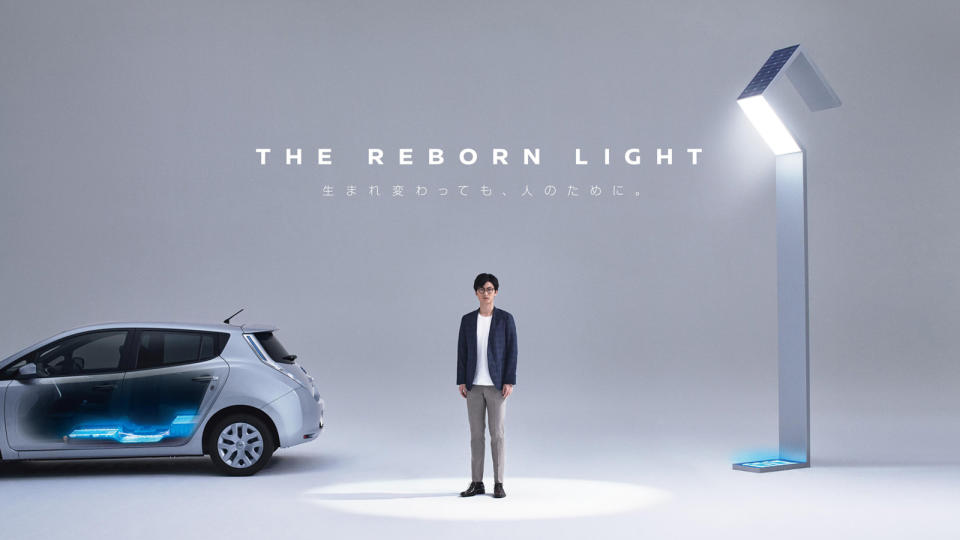Nissan is using recycled Leaf batteries to power street lights
It's part of a larger push into home and business energy storage.
Nissan is using old Leaf batteries in a very meta way: To power streetlights that will make roads safer for vehicles and pedestrians. Called "The Light Reborn," it uses a solar panel that charges up a battery, which can then power the LED at night with no external connection required. Nissan is testing the product today in Namie, Japan -- a city that was abandoned after the Fukushima nuclear disaster -- and plans to do a full-scale installation in the town later this year.
Nissan has been testing the idea of used Leaf batteries for awhile with its Tesla Powerwall-like xStorage program. The idea of using the batteries in an off-grid streetlight, however, is new and appears to be just the start of Nissan's new push into grid and off-grid storage.
Much like its alliance-mate Renault, Mercedes and others, Nissan also has a grand plan to use batteries from old and destroyed EVs in several ways. One is for residential homes and buildings that use solar or wind energy, storing energy and releasing it at night or if the power goes out. Another is to use the batteries for "smart booths" that could power cellphones and other devices. Finally, Nissan unveiled a whimsical scheme, "a park converting the bursting energy of children into electricity while they play. Children's energy during the day keeps the park bright and safe at nighttime."
Much like Renault's "Smart Island," Nissan's Light Reborn project is more a small-scale test and way to market its green credentials. Namie, Japan, is a particularly poignant location for a test, as the nearby Fukushima nuclear plant lost power during an earthquake and tsunami, causing a partial meltdown of the core.
So far, only Tesla has truly made a big push into the consumer market with its Powerwall batteries and solar panels. By the time 2020 rolls around, however, and large companies like VW release mainstream EVs, the idea of recycling car batteries for the grid will be a lot more feasible -- and necessary.


